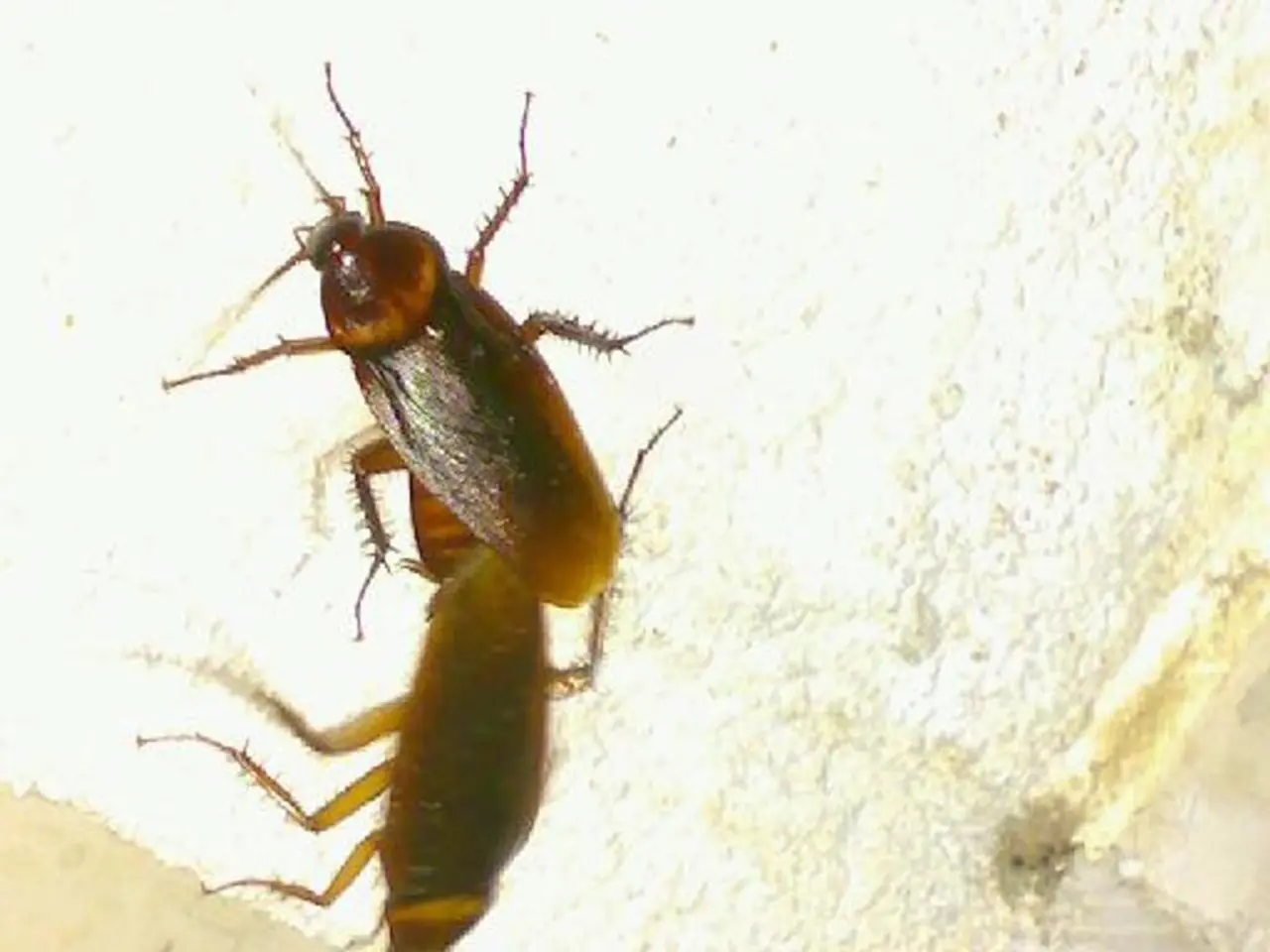Oropouche Virus Spread: Potential New Zika-Like Health Concern to Awareness
The Oropouche virus, a member of the Orthobunyavirus genus and the Peribunyaviridae family, has been causing concern in tropical regions such as Brazil, Cuba, and the Amazon Basin. With no vaccine or specific antiviral treatment currently available, prevention strategies remain critical in the fight against this virus.
The primary prevention methods focus on reducing exposure to the tiny biting midges (*Culicoides paraensis*) and mosquitoes that transmit the virus. Vector control is essential, with studies showing that fine mesh bed nets and chemical sprays on the walls of infected buildings can effectively reduce vector contact. Standard mosquito nets are generally ineffective as the midges are small enough to pass through netting [1][4].
Individuals in affected or high-risk areas are advised to take personal protective measures. This includes wearing protective clothing that covers exposed skin and using insect repellents containing ingredients like DEET, IR3535, or icaridin to reduce the risk of bites [1].
In addition to these measures, enhanced surveillance, improved diagnostic capacity, and case tracking are recommended to identify and contain outbreaks promptly. This is particularly important as Oropouche virus outbreaks have increased recently, and experts predict that the virus will spread across additional territories due to climate alterations and international travel patterns [2].
For travellers to endemic areas, protective measures are strongly encouraged. Although travel to affected areas is not restricted, visitors are advised to take the same precautions as local residents [1].
Despite the challenges posed by the Oropouche virus, researchers continue to explore viral transmission routes and pathogenesis to inform future prevention strategies. Modern technological mosquito and midge management strategies, expanded funding for scientific research, and social media platforms may produce potential vaccines and treatments in the future [3].
Oropouche fever, caused by the Oropouche virus, produces non-fatal but severe symptoms such as high fever, severe headaches, muscle and joint pain, nausea, vomiting, and sensitivity to light. Severe complications linked to Oropouche fever are uncommon but specific types of meningitis and encephalitis have appeared in isolated cases [4].
The diagnostic difficulties with the Oropouche virus persist because it shares clinical features with Dengue and Zika viruses, leading to delayed outbreak responses through incorrect diagnoses [4]. However, with increased surveillance and improved diagnostic capacity, public health officials can respond more effectively to outbreaks.
In summary, the main prevention strategies for Oropouche virus infection are vector control, personal protection, surveillance and diagnostics, and travel precautions. Controlling the insect vectors and personal preventive steps remain critical in the absence of vaccination or antiviral therapies [1][2][4].
References: [1] World Health Organization. (2021). Oropouche virus. https://www.who.int/news-room/fact-sheets/detail/oropouche-virus [2] Centers for Disease Control and Prevention. (2021). Oropouche virus. https://www.cdc.gov/ncidod/dvbid/oropouche/index.html [3] Carvalho, L. P., et al. (2019). Oropouche virus: an emerging arbovirus in the Americas. Clinical Microbiology and Infection, 25(Suppl 2), S10-S16. [4] Gubler, D. J., et al. (2016). Oropouche virus: an emerging arbovirus in the Americas. Emerging Infectious Diseases, 22(1), 4-8.
- Maintaining hydration and a balanced nutrition are crucial for overall health, especially when implementing fitness-and-exercise routines to strengthen muscles.
- In environmental-science studies, scientists have linked muscle growth to health in various organisms, suggesting potential connections between the two.
- A medical-condition affecting muscle function could lead to decreased health-and-wellness, emphasizing the importance of early detection and treatment.
- With climate-change causing more frequent extreme weather events, there is concern that the spread of the Oropouche virus may also increase, due to its favored tropical climates.
- In light of scientific advances in understanding the Oropouche virus, early prevention methods like personal protective measures and vector control remain essential, underscoring the need for ongoing research in health and environmental science.




